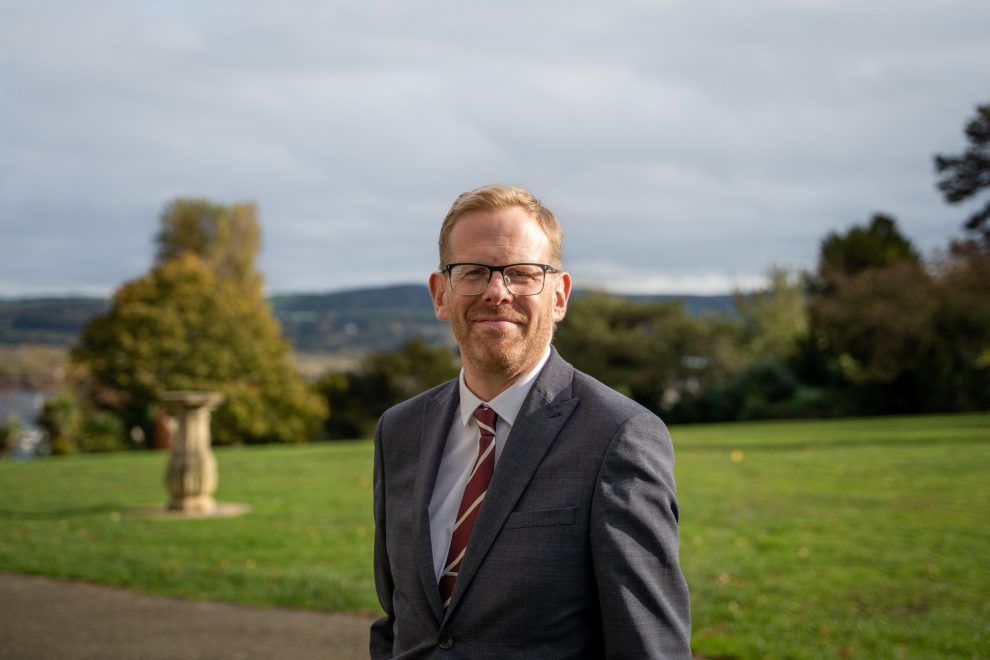CONWY County Borough Council’s new chief executive has opened up on the pressures of the job after five months at the helm, suggesting Conwy needs more help from Welsh Government.
Chief executive Rhun ap Gareth listed housing, homelessness, and social care as some of the biggest challenges facing Conwy. But he also took aim at the Welsh Government after another below average Local Government Settlement.
Despite a Welsh average increase of around 7.9%, Conwy received only 7.3%, not helping the £19m funding gap and 10% authority-wide cuts services must make – only education and social services escaped the 10% rule and are being asked to make 5% cuts.
Mr ap Gareth grew up in Beddgelert and worked for Gwynedd County Council as the deputy monitoring officer before making the switch to become Conwy’s monitoring officer two years ago.
Mr ap Gareth, who also lived in Glan Conwy as a child, said the council was facing multiple challenges, explaining Conwy’s well was running dry.
He also admitted Conwy had a big problem with homelessness after figures last year revealed the authority was the fourth highest in Wales in terms of the number of people living in temporary accommodation.
“There is around £25m or £26m in reserves, but because of inflationary pressures, mostly pay – those are unexpected – because of that, we will have to use some reserves in this year to cover those costs,” said Mr ap Gareth.
“We also have significant pressures in terms of housing, so homelessness, the affordability of housing generally across the county. I think the homelessness position is a worry because we have people in temporary accommodation in bed and breakfast, which isn’t where we want people to be. We want people to have homes to live in.
“And the other one is around social care and social services. We have an elderly population. Our social care team work tirelessly under difficult circumstances. And I guess around that, we also have children in care and placements in care.
“All of these pressures with inflation going up, it is trying to find solutions to those problems, and I guess in terms of my own priorities, people having a home.”
But Mr ap Gareth said Conwy needed more money from Welsh Government beyond the extra £15m the council received as part of the Welsh Government settlement.
Conwy’s 7.3% Local Government Settlement increase was dwarfed, for instance, by Denbighshire’s 8.2%, which resulted in only a 3.8% council tax rise, this contrasting drastically to Conwy’s proposed 12.5%.
“There is essentially a need for Welsh Government to look at the way it sets its formula (in setting councils’ settlements) possibly, in terms of the pressures we are all facing, but it is a difficult one,” he said.
“It is difficult to compare different counties, the way things fall financially. What I would say is that even with that (council tax) increase, the decision for our councillors, they will scrutinise the information and come up with their proposals. Even with that difference, the amount of council tax people will pay in Conwy and Denbighshire will be very similar.
“Historically Conwy have had a lower council tax level than our neighbours and both Conwy and Denbighshire lower than Gwynedd. But I do accept it’s never easy to think in these numbers, but once the dust settles on this year’s budget, we will have to work on next year because we will have the same issues coming down the track, and that’s the same for all local government.”
A Welsh Government spokesperson said: “The local government funding formula is agreed in partnership with local government. As part of our efforts to protect public services we are providing increased funding for local authorities in the coming financial year, with Conwy Council receiving a 7.3% increase. We fully recognise the significant challenges caused by inflation and will continue to work closely with local government to meet the shared challenges we face.”

















